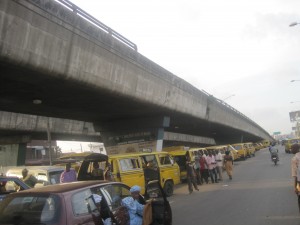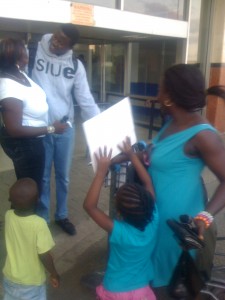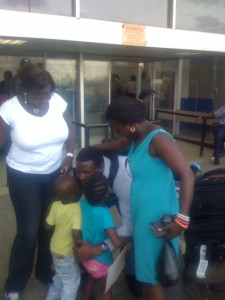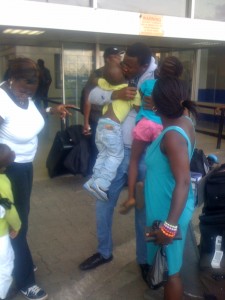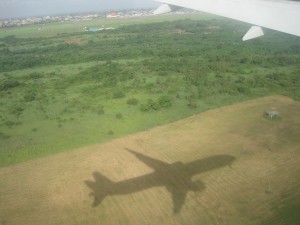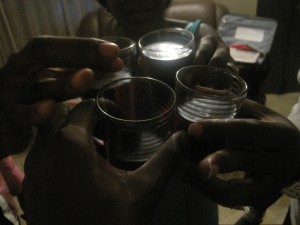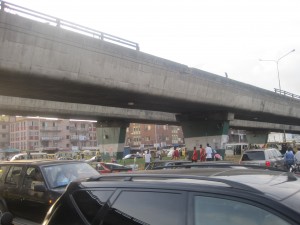 This fast city, known for its dirt as for its fast cars, runs on adrenaline. Panting for air in the back of a rickety bus of uneven metals, one wonders where exactly everyone is rushing to. I had this same feeling in Chicago, but not while in a public bus. Compared to my little village in Edwardsville, Lagos feels like hell on steroids. I’ve told you about the noise, right? When you’re not being deafened by the generators from every household that have resorted to using them to supplement electricity supply, you are being hassled on the road by incorrigibly noisy vendors on the road, bus conductors, and bus drivers with lead hands on vehicle horns. Aaaargh! Give me Cougar Village. Or, at least, give me Ibadan for now.
This fast city, known for its dirt as for its fast cars, runs on adrenaline. Panting for air in the back of a rickety bus of uneven metals, one wonders where exactly everyone is rushing to. I had this same feeling in Chicago, but not while in a public bus. Compared to my little village in Edwardsville, Lagos feels like hell on steroids. I’ve told you about the noise, right? When you’re not being deafened by the generators from every household that have resorted to using them to supplement electricity supply, you are being hassled on the road by incorrigibly noisy vendors on the road, bus conductors, and bus drivers with lead hands on vehicle horns. Aaaargh! Give me Cougar Village. Or, at least, give me Ibadan for now.
In my room at Cougar Village, I have never put the volume of my computer up higher than 50% of the total volume, and it was always loud enough to be heard at the front door from my room on the other end of the apartment. Right now in my sister’s house, with roaming children, a roaring fan and a rumbling generator, I can barely hear anything even at my Dell Vostro 1510’s loudest volume level.
When we talk about Climate change, we have always incorrectly assumed that the culprits are big oil corporations in the Niger Delta, or big industries in developed countries. Ask me now, and I’ll tell you that fumes from Lagos generators and commuting vans, and so much of this useless noise contribute even more to the degradation of the environment. And we say the Atlantic Ocean is now encroaching on the Lagos Island through the Bar Beach. Why won’t it? The amount of heat generated by these machines should be enough to deplete even more of the ozone layer. And what about the dirt, plastic bags on roadsides that will eventually find their ways into gutters and clog the flow of water when it rains? Well, there are some working trash cans, but are there sufficient implementation of laws regarding proper waste disposals? Are there such laws to begin with? And does anyone obey them?
My suggestions would include more road signs, stop signs, speed limit signs, traffic lights, required speedometer laws for each vehicle, and a ban on all honking throughout the day. As for the generators, there’s no solution yet although I could say let’s scrap them all totally, and force everyone to get solar panels – after all, we have the sun in abundance. The world is moving everyday towards new clean sources of energy: wind, and solar. Not only to reduce pollution, it will also reduce noise, which I believe must account for much of the disruptive behavioural patterns we see manifest in much of our public life.
Pictures coming soon. Apparently I’m not as used to whipping out my camera on the streets as I was a few months ago.
